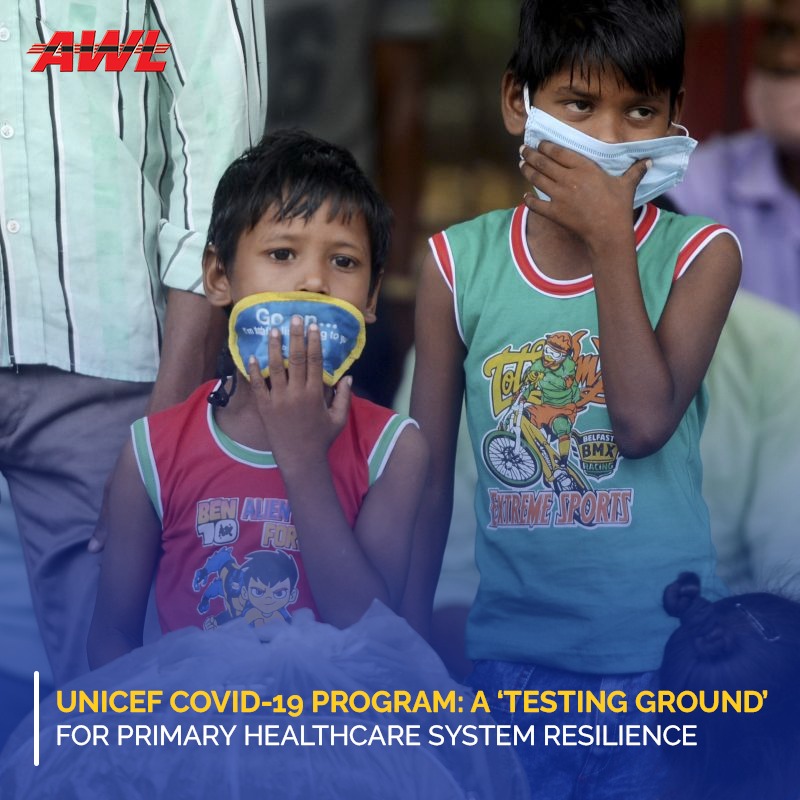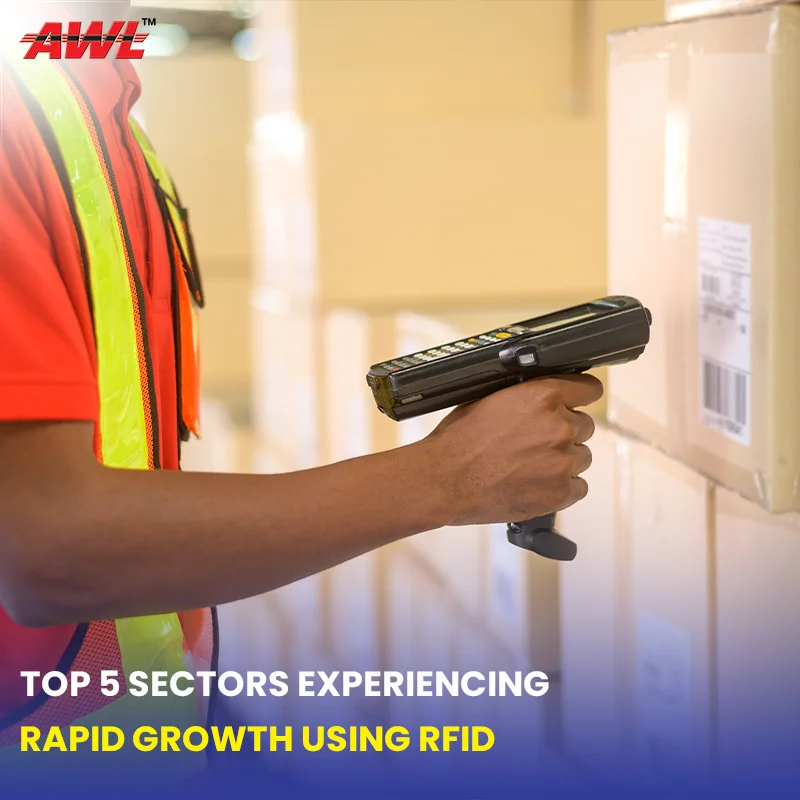

The COVID-19 pandemic has prompted unprecedented scientific speed, collaboration, and investment towards the development of vaccines vital to end the current crisis.
To read and hear so many stories about the dedication and commitment of those on the front lines caring for patients and fighting this pandemic has been both heart-wrenching and reassuring.
The primary health care system has shown itself to be the weakest link in the pandemic response as it cannot keep hospitals bursting to the point of overflowing with critically ill patients even though it is so important for "flattening the curve" through monitoring, testing, and contact tracking. Though the pandemic has shed light on the weaknesses of countries' health systems, it has also made clear how crucial primary healthcare can be in times of emergency.
UNICEF the world organization has especially addressed barriers to adequate health care and information concerning the most vulnerable children and mothers. By focusing on changing behaviors and practices for newborn girls, programs and targets to address inequities. Through these programs which are spread in over 190 countries and territories, save the lives of children, defend their rights, and help them reach their full potential, from early childhood to adolescence.
It was impossible to keep up with the demand for vaccines in the initial stages of the pandemic because of a lack of supply. Even though UNICEF had assured that it could meet the requirements, unforeseen difficulties in scaling up bulk productions prevented the two suppliers awarded contract supplies from being able to meet the demands.
Together with governments, the World Health Organization, and other partners, UNICEF has taken various measures to turn this limited supply into a benefit
As the world faced the COVID-19 crisis together, UNICEF along with Policymakers, the ministry of health, and other partners came forward to provide healthcare facilities and information worldwide especially to women and children. In this worldwide effort to protect healthcare workers, families, and children, the organization started distributing two billion doses of the COVID-19 vaccine.
UNICEF engaged the vaccine industry regularly through Vaccine Industry Consultation (VIC), as well as through other channels, to understand challenges, assess market opportunities, and coordinate strategic initiatives. There were 27 manufacturers supplying vaccines through UNICEF or intending to do so at the 2019 VIC, setting a record.
Read More: Modernizing Healthcare Supply Chain in the COVID Era
In addition to working directly with governments, UNICEF engaged in an annual forecasting exercise to determine national vaccine requirements that help inform procurement and shipment plans. This helps ensure that adequate vaccine supplies are available in-country to meet national vaccination goals.
The COVAX Facility, a global initiative driven by WHO, UNICEF which stands for United Nations International Children's Emergency Fund, Gavi the Vaccine Alliance and CEPI, the Coalition for Epidemic Preparedness Innovations to guarantee a reasonable conveyance of the COVID-19 antibody is an incredible project. As defined by the World Health Organization-- COVID-19 vaccine development is the most pressing challenge of this current time -- and nothing is achieved until everyone can benefit. The COVAX Facility was a joint program of 92 nations, known as AMC923 countries (which the World Bank had designated as eligible for international assistance). Around 90 self-financing nations (including top-level salary nations and countries in the World Bank grouping) were committed because of this program to achieve a 2 billion dose target of COVID-19 vaccines by 2021. In the world's largest and fastest supply operation of its kind, UNICEF secured the procurement and supply of COVID-19 vaccines. Especially on behalf of the global COVAX Facility, the organization partnered with manufacturers and partners to supply vaccines, manage logistics, and store COVID-19 vaccines.
It was impossible to keep up with the demand for vaccines because of a lack of supply. Even though UNICEF had been assured that it could meet the requirements, unforeseen difficulties in scaling up bulk productions prevented the two suppliers awarded contract supplies from being able to meet the demands.
Together with governments, the World Health Organization, and other partners, UNICEF has taken various measures to turn this limited supply into a benefit
UNICEF upholds 26 oxygen plants in total and sends more than 4,000 oxygen concentrators, and other basic supplies to India as our country keeps on wrestling with COVID-19 There have been occasions where COVID-19 patients have died because of inadequate oxygen provision. The second influx of COVID-19 tested the limits of India's wellbeing framework in various manners as it spread from metropolitan to provincial regions. In Gujarat, there were deficiencies of oxygen beds, Intensive Care Unit (ICU) beds, and other fundamental wares. The expansion in cases and new variations of COVID-19 implied convenient accessibility of oxygen was pivotal. The continuous stock of oxygen was fundamental to manage COVID-19 connected death rates. It was against this foundation that UNICEF started the acquisition of Oxygen Generation plants (OGP) to help government emergency clinics across India, remembering one for Jamnagar, a region in the southwest of Gujarat.
UNICEF had sent basic life-saving supplies, including 3,000 oxygen concentrators, demonstrative tests, clinical units, and other hardware to assist India in its fight with a dangerous influx of COVID-19. "The Coronavirus is seriously overstraining the wellbeing framework in India," said Dr. Yasmin Haque, UNICEF Representative in India. To prevent further tragedies, immediate action had to be taken, and to do so UNICEF had provided oxygen supplies and other important emergency equipment as a part of the immediate response while supporting efforts to withstand shocks and stresses in the future. Considering how rapidly the outbreak was spreading, much more needs had to be fulfilled. In addition to the oxygen concentrators, UNICEF had donated 500 high-flow nasal cannulas and 85 RT-PCR machines (those for COVID testing). UNICEF also implemented a global program for children's health that will purchase and install 25 oxygen plants in hospitals in the northeast and Maharashtra, and install more than 70 thermal scanners at various entry points throughout the country.
As part of the COVID-19 response and vaccination campaign, UNICEF has been working closely with the government. Dr. Maulik Shah, Associate Professor Pediatrics at MP Shah Medical College, Jamnagar sincerely thanked UNICEF for helping them with the oxygen therapy.
THE FIGHT AGAINST DEADLY VIRUSES BY UNICEF
Apart from COVID-19, UNICEF has also helped countries fight polio. Polio, which is a destructive viral sickness that was once - the leading cause of paralysis among children globally, has nearly been eliminated. Since 1988, the quantity of youngsters influenced by polio has diminished by close to 100% – from 350,000 cases in 125 nations. It is necessary to vaccinate every child in every household completely to eradicate polio. There are still thousands of children who are not vaccinated against polio.
As a leading accomplice of the Global Polio Eradication Initiative (GPEI), UNICEF inoculates more than 400 million kids internationally against polio consistently. Our specialization lies in the stock of safe immunizations, and building trust, and spurring guardians to inoculate their kids against polio.
The organization estimates that it has distributed more than one billion doses of polio vaccines annually, equivalent to a full 50 percent of global oral polio vaccines (OPV).
UNICEF's privately based polio laborers and volunteers assume an essential part in contacting networks. They visit each family in their networks, responding to questions, dissipating against inoculation reports, and empowering moms and fathers to vaccinate their kids. They likewise empower interest and backing from neighborhood metro and strict pioneers, and other compelling characters to advance inoculation locally.
The covid 19 response globally relies heavily on primary care because it is capable of meeting more than 80% of people's health needs. COVID-19 is seen as a pathogen that causes illness and death. Clinical and gatekeeping responses are critical to identifying and triaging potential cases, ensuring early diagnosis, treating anxious patients, and reducing the length of hospital stays for vulnerable patients. There is a continuous change in the variants of the Covid-19 virus. Variations of these vaccines have varying levels of effectiveness. The Covid-19 pandemic concern has been one of the world's most pressing social issues. In addition to fighting the COVID-19 pandemic and preventing the next terrible health catastrophe, UNICEF makes sure that these shifts are vital to providing health security, stability, and prosperity.
UNICEF estimates that vaccines save between 2 and 3 million lives every year. Globally, UNICEF has been the largest buyer of vaccines, procuring more than two billion doses of vaccines annually.
As part of its ongoing work with partners, UNICEF seeks to: Improve access to life-saving oxygen by procuring and installing oxygen generation plants in hospitals to treat severe and critical COVID-19 cases.
It aims to provide speedy, accurate testing machines in some of the most affected districts of India.
UNICEF Primary Health Care is the indispensable base in COVID-19 response both nationally and globally as it meets more than 80% of people’s health needs.
The work of this worldwide known organization is to promote maternal, child, and newborn health in partnership with the Government of India, to reach every child and every parent in the country.
Not only this with the help of the 'I AM UNICEF' network Volunteer platform, The United Nations Children's Fund is mobilizing student volunteers to create several info-graphics, posters, pamphlets, and a community radio show to inform the communities on the latest government measures while living under the COVID-19 restrictions. The pandemic requires that the message must be conveyed through the appropriate medium at the right time.
UNICEF has its motive focused on the vision that now it's time for unity, a time to work with the international community to combat this deadly virus and its devastating effects. And to make sure that this motive has is being followed over 26,066 oxygen concentrators have been shipped by UNICEF to help ensure that oxygen reaches those in need around the world and about one-quarter of these supplies were for India by providing freight capacity for emergency response, technical expertise, and cash contributions to supply chain improvement projects.
The result is that everyone needs to contribute to the fight against this pandemic: taking a dose when it becomes available, preventing the spread of vaccine misinformation in our communities, being informed about the safety and importance of vaccines, as UNICEF and other health care entities have done.
Also Read About Healthcare Logistics

